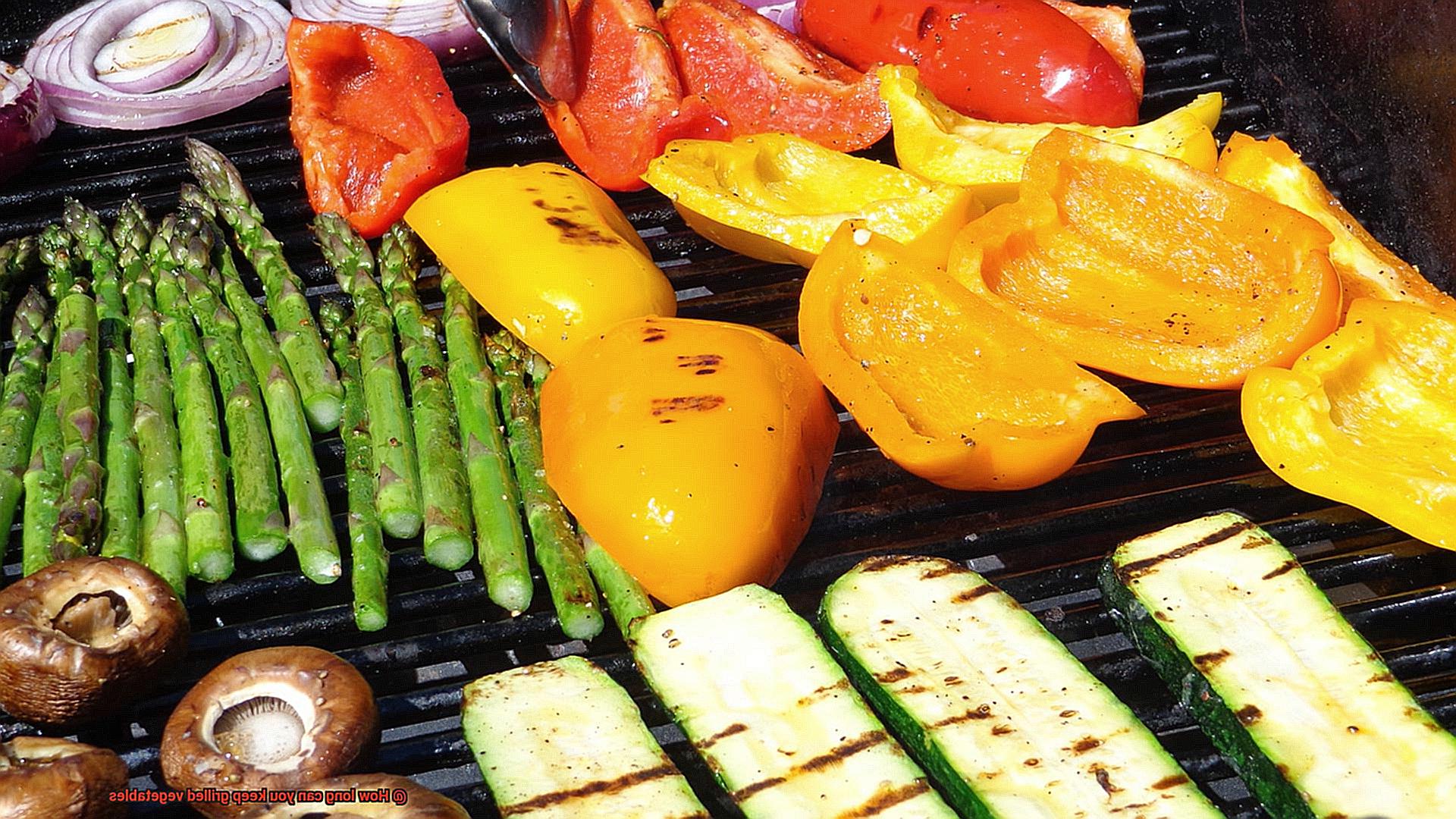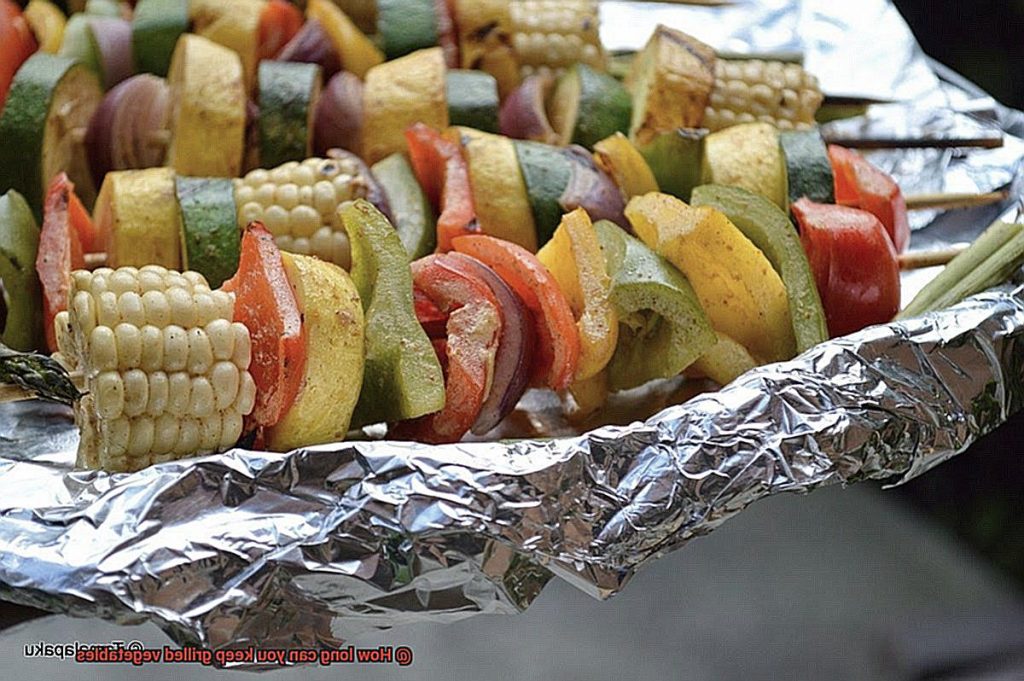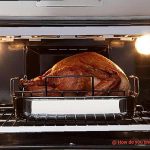Do you love the smoky, charred flavor of grilled vegetables but often find yourself wondering how long they can last in your fridge? Are you hesitant to eat those week-old grilled peppers and zucchini lurking in the back of your refrigerator? Fear not. In this blog post, we’ll be exploring the ins and outs of how long you can keep grilled vegetables fresh and delicious.
If you’re like most people, grilling up a big batch of veggies is a great way to meal prep for the week. But it’s important to know how long those veggies will stay good in the fridge. We’ve got all the tips and tricks you need to make sure your grilled vegetables stay fresh for as long as possible.
We’ll be delving into topics like shelf life, proper storage techniques, and even answering some common questions like whether or not you can freeze or reheat your grilled veggies. By the end of this post, you’ll have all the information you need to keep your grilled vegetable game on point.
So if you’re ready to learn more about how to keep your grilled vegetables fresh and tasty, read on.
Contents
What to Consider Before Grilling Vegetables
Grilling vegetables is a fantastic way to add some pizzazz to your meals. However, it’s essential to consider a few critical factors before grilling vegetables to ensure that they can be stored safely and enjoyed later.
Freshness of Vegetables
The quality of the vegetables you choose is vital in ensuring that they have a longer shelf life. Look for vegetables that are fresh, firm, and brightly colored. In-season and locally sourced vegetables are the best options as they tend to be the freshest.
Preparation of Vegetables
Before grilling, it’s crucial to wash vegetables thoroughly and remove any dirt or debris. It would help if you also considered blanching or pre-cooking certain vegetables to ensure their tenderness and prevent spoilage. Proper preparation will help maintain the vegetables’ freshness and quality.
Grilling Temperature
The temperature at which you grill your vegetables is also crucial. Vegetables should be cooked at high temperatures, ideally around 400-450 degrees Fahrenheit for maximum flavor and tenderness. However, be cautious not to overcook them as this can lead to a loss of texture and taste.
Storage
Once the vegetables are grilled, proper storage is vital in maintaining their quality and freshness. Store them in an airtight container in the refrigerator for up to four or five days. If you can’t consume them within this time frame, freeze them for up to three months.
Type of Vegetable
It’s important to note that not all vegetables have the same shelf life after grilling. Leafy greens like spinach and lettuce tend to wilt quickly and should be consumed within a day or two after grilling. Heartier vegetables like peppers, onions, and zucchini can last up to 5 days. It’s essential to consider the type of vegetable when determining how long they will last after grilling.
By following these guidelines, you can enjoy delicious grilled vegetables safely without waste.
How to Store Grilled Vegetables Properly

Grilled vegetables are a tasty and healthy addition to any meal, but it’s essential to store them correctly to maintain their freshness and prevent foodborne illness. Here are some tips to help you store your grilled vegetables properly:
Separate from Raw Meat
It’s crucial to store grilled vegetables separately from raw meat or poultry to avoid cross-contamination. You can use separate containers or bags for each type of food.
Airtight Containers
When storing grilled vegetables, use airtight containers or resealable plastic bags. It’s important to remove as much air as possible before sealing the container or bag. This helps prevent bacterial growth and keeps the vegetables fresh for longer.
Label the Containers
Labeling the containers or bags with the date of storage is important so that you can keep track of how long they’ve been stored. This helps you consume them within their safe period.
Cool Down Before Storing
Allow your grilled vegetables to cool down to room temperature before storing them. This helps prevent sweating and condensation in the container, which can lead to moisture buildup and bacterial growth.
Use Within 3-4 Days
Grilled vegetables can be stored in the fridge for 3-4 days. However, some vegetables like eggplant and zucchini tend to spoil faster and should be eaten within 2-3 days. Always check the quality of your veggies before consumption.
Blanch Before Freezing
If you plan on storing your grilled vegetables for longer periods, like freezing them, it’s important to blanch them first. Blanching involves boiling the vegetables for a few minutes and then immediately transferring them to an ice bath to stop the cooking process. This helps preserve the texture and color of the vegetables during freezing.
Different Vegetables and Their Storage Times
First off, some veggies are best eaten immediately after grilling. Bell peppers, zucchini, and eggplants tend to lose their texture and taste quickly. To fully enjoy their goodness, it’s recommended to consume them within 24 hours of grilling. So, make a plan to savor them fresh.
If you’re looking to store veggies for a few days, onions, mushrooms, and tomatoes can last up to 3-4 days in the refrigerator if stored properly. Keep them in an airtight container or resealable plastic bag to prevent them from drying out.
For root vegetables like potatoes and carrots, you can grill and store them for up to 4-5 days in the fridge. However, it’s crucial to remove the charred skin before storing them. This will prevent moisture buildup on the surface of the vegetable, which can cause spoilage.
While leafy greens like spinach and lettuce are not recommended for grilling as they tend to wilt quickly, heartier options like kale and collard greens can be grilled and stored for up to 2-3 days in the refrigerator.
Keep in mind that the shelf life of grilled vegetables depends on the grilling method. Veggies grilled at high temperatures for a shorter period tend to have a shorter shelf life compared to those grilled at lower temperatures for a longer period.
In summary, consuming grilled veggies immediately after grilling is best for optimal texture and flavor. However, if you need to store them, make sure to store them properly in an airtight container or resealable plastic bag in the refrigerator. And remember to consume them within the recommended storage time for each vegetable.
Leafy Greens vs Heartier Vegetables
Imagine indulging in a mouthwatering grilled vegetable feast, but unable to finish all your scrumptious veggies. Don’t worry, as an expert on the topic of ‘Leafy Greens vs Heartier Vegetables,’ I’m here to guide you through the art of storing these grilled goodies.
Let’s start with leafy greens – the delicate, high water content vegetables such as spinach, kale, and lettuce. These greens are flavor powerhouses but require immediate consumption after grilling. However, if storing is necessary, wrap them in paper towels before placing them in an airtight container in the fridge. Keep in mind that they can last for up to 2 days, but may lose texture and flavor over time.
Now, onto heartier vegetables such as zucchini, eggplant, and peppers. These veggies have a firmer texture and lower water content, making them more resilient and able to withstand longer storage times. Once grilled, allow them to cool down to room temperature before wrapping them tightly in plastic wrap or aluminum foil. Then, place them in an airtight container in the fridge where they can last up to 5 days. For optimal freshness, it’s best to consume them within 3 days.
Temperature and humidity levels can affect the storage time for grilled vegetables. Always use your best judgment when deciding whether or not to consume leftovers. If you’re unsure, it’s better to be safe than sorry – discard any questionable veggies to avoid the risk of foodborne illness.
Benefits of Freezing Grilled Vegetables
Firstly, freezing grilled vegetables allows you to enjoy them all year round. This is especially handy if you have a surplus of veggies from your garden or if you buy them in bulk from the farmers market. You can freeze them in bulk and then thaw them out whenever you need them, ensuring that you always have access to fresh and healthy veggies, regardless of the season.
Secondly, freezing grilled veggies can save you precious time in the kitchen. By grilling and freezing veggies ahead of time, you can cut down on prep time when cooking meals during the week. Simply thaw out the veggies, and they are ready to use in recipes like stir-fries, salads, or as side dishes. This means that you can have a wholesome meal on the table in no time.
Another fantastic benefit of freezing grilled vegetables is reducing food waste. We all know how quickly veggies can spoil, but instead of tossing them out, why not grill them up and freeze them for later use? This way, you can make sure none of your precious produce goes to waste. Plus, frozen veggies don’t lose their nutritional value like some other preserved foods.
Lastly, freezing grilled vegetables can be a cost-effective way to eat healthy. When veggies are in season, they tend to be cheaper and fresher. By grilling and freezing them at their peak, you can take advantage of these lower prices and enjoy healthy meals all year round without breaking the bank.
How to Freeze Grilled Vegetables the Right Way
Grilled vegetables are a tasty and healthy addition to any meal. But, what do you do with the leftovers? Instead of throwing them away, freezing grilled vegetables is a great way to preserve their flavor and nutrition for later use. However, it’s important to freeze them the right way to ensure they stay fresh and tasty for as long as possible.
Properly Prepare the Vegetables Before Freezing
The first step in freezing grilled vegetables is allowing them to cool completely before freezing. If you freeze them while they are still hot, they will develop ice crystals and become mushy. Once they have cooled down, cut the vegetables into bite-sized pieces before freezing them. This will make it easier to thaw them and use them later on.
Prevent Stickiness with Single-Layer Freezing
To prevent the vegetables from sticking together, place them in a single layer on a baking sheet or tray and put them in the freezer for a few hours. This will help maintain their individual pieces, making it easier to portion them out later.
Airtight Containers are Best for Storage
Once the vegetables are frozen, transfer them to an airtight container or freezer bag. Label the container with the name of the vegetables and the date you froze them. This not only helps keep your freezer organized but also helps you keep track of how long they have been frozen.
Thaw Vegetables Properly Before Use
When you’re ready to use the frozen grilled vegetables, simply thaw them in the refrigerator overnight or at room temperature for a few hours before using them in your recipe. This helps maintain their texture and flavor.
Choose Firm Vegetables for Best Results
It’s important to note that not all vegetables freeze well. Vegetables with a high water content such as cucumbers, lettuce, and tomatoes do not freeze well and should be avoided. Stick with firmer vegetables such as peppers, zucchini, and eggplant for best results.
Also Read: Do I Need a Side Burner On My Gas Grill?
Conclusion
To sum it up, grilled vegetables are a nutritious and mouthwatering addition to any meal. However, it’s crucial to understand how long they can last in the fridge. To ensure your veggies remain fresh, you need to consider factors such as vegetable freshness, preparation, grilling temperature, and proper storage techniques.
Storing grilled vegetables requires special attention. You must keep them separate from raw meat and poultry and store them in airtight containers or resealable plastic bags. It’s also essential to label the containers with the date of storage so that you can consume them within their safe period.
Different types of veggies have varying shelf lives after grilling. Leafy greens such as spinach and lettuce wilt quickly and should be consumed within two days of grilling. On the other hand, heartier vegetables like peppers, onions, and zucchini can last up to five days.
Freezing grilled vegetables is an excellent way to preserve their flavor and nutrients for later use. However, it’s crucial to freeze them correctly by allowing them to cool completely before freezing. Afterward, place them in a single layer on a baking sheet or tray before transferring them into an airtight container or freezer bag labeled with the name of the vegetable and date frozen.
By following these guidelines on how long you can keep grilled vegetables fresh and delicious, you can enjoy your favorite veggies without wasting any food.






